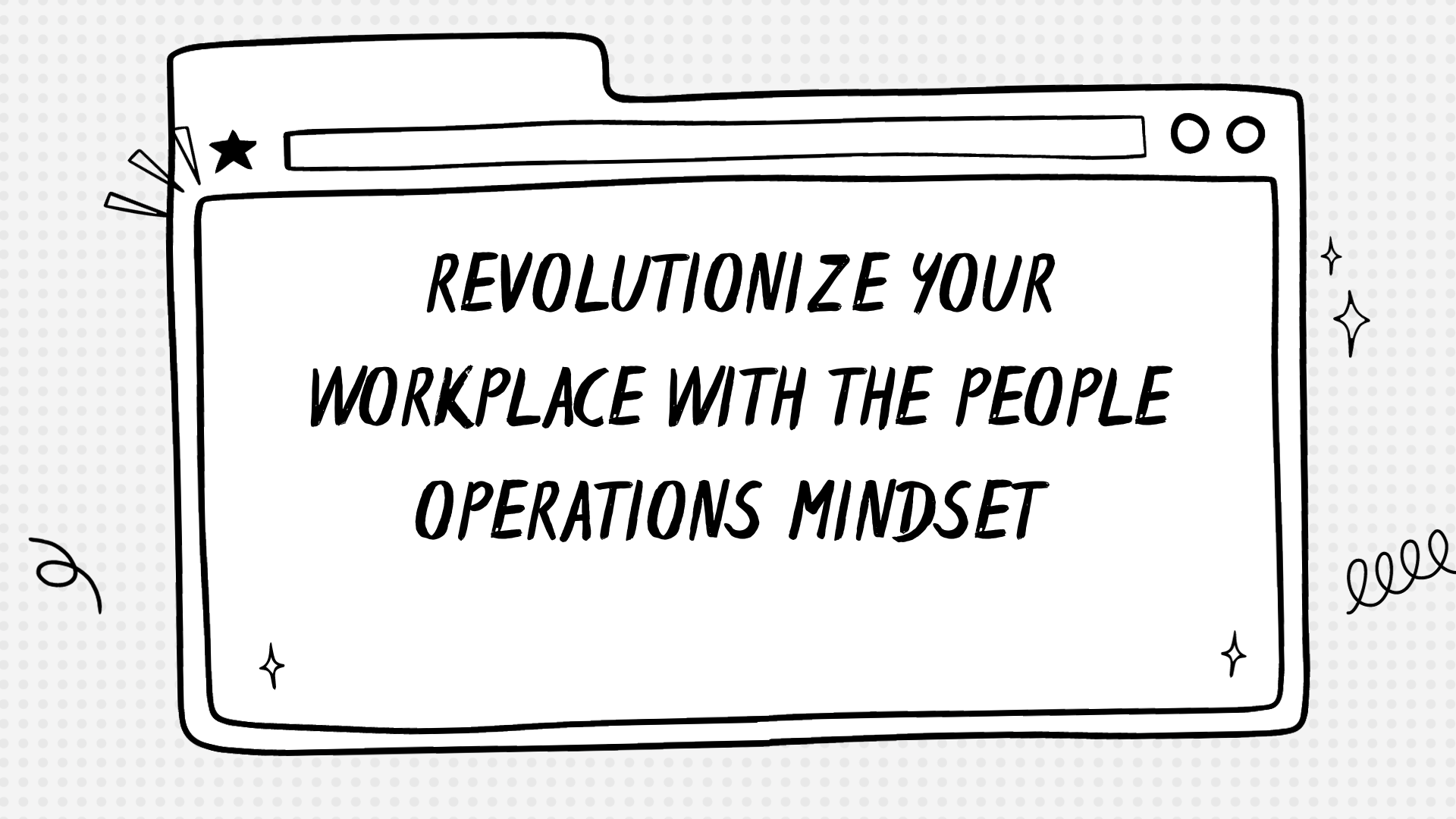This article will shed light on People Operations, an integral part of management that brings focus to the human elements within your enterprise, fueling productivity and bolstering overall performance.
Key Takeaways
- People Operations, also known as HR Operations, focuses on managing and optimizing the employee experience throughout their journey within a company.
- It differs from traditional Human Resources by prioritizing growth and development, employee satisfaction, and building a positive work culture.
- Key roles in a People Operations department include talent acquisition manager, performance management analyst, and employee engagement specialist, among others.
- Responsibilities of People Operations include linking employee performance to company goals, managing the employee journey and lifecycle, fostering employee recognition and engagement,
- Prioritizing People Operations empowers employees through growth opportunities,
Understanding People Operations
People Operations, also known as HR Operations, focuses on managing and optimizing the employee experience throughout their journey within a company.
What is People Operations?
People Operations is a unique approach that puts the emphasis on the human element in business operations. The primary aim of this function is to manage and optimize every phase of an employee’s lifecycle, from hiring to departure.
Unlike traditional Human Resources, it ensures a greater focus on growth and development rather than just limiting to legal compliance and ethics. A well-structured People Operations team contributes significantly towards achieving company goals by implementing effective programs and initiatives.
They work tirelessly to enhance productivity through strategic talent acquisition, fostering engagement, managing performance, and ensuring smooth offboarding processes when necessary.
Moreover, they prioritize employee satisfaction for retaining skilled professionals and boosting overall company performance. This indispensable role brings added value as they create environments where employees are motivated to bring their best selves forward each day at work; making them feel valued, supported while shaping the community culture positively.
How does it differ from Human Resources?
People Operations differs significantly from traditional Human Resources. Instead of focusing primarily on legal compliance and ethics, People Operations places a higher emphasis on the welfare of employees.
It sees to it that growth and development opportunities abound in the workplace. With an organized structure, targeted goals materialize as this operational approach streamlines processes for efficiency across different departments.
Contrastingly, Human Resources often remain confined to its role as mediator between the company’s management and workforce while addressing guidelines and disciplinary issues. On the other hand, People Operations leaps beyond these boundaries by prioritizing employee satisfaction to retain top talent and heighten overall company performance.
Its direct involvement in building community ties within the organization fosters a strong work culture where each individual feels valued for their contributions.
Key roles in a People Operations department
Understanding the fundamental roles in a People Operations department is crucial to the successful implementation of people-first values and strategies. Here are some key roles:
| Position | Description |
|---|---|
| Talent Acquisition Manager | Responsible for sourcing, interviewing, and hiring top talent to fulfill organizational needs. |
| Employee Engagement Specialist | Centers on enhancing employee productivity and satisfaction through community-building and fostering a positive organizational culture. |
| Performance Management Analyst | Ensures optimal employee performance by evaluating and enhancing performance-related processes and mechanisms. |
| Employee Lifecycle Manager | Manages all facets of an employee’s journey within the company, from recruitment to departure. |
| Company Culture Advocate | Dedicated to sustaining a nourishing work environment where employees feel valued, supported, and inspired to give their best. |
| Workforce Development Coordinator | Leads initiatives related to employee development, offering training resources, workshops, and growth opportunities. |
| Interdepartmental Communication Facilitator | Enhances and streamlines communication processes among various departments within the company. |
Responsibilities of People Operations
People Operations is responsible for linking employee performance to company goals, managing the employee journey and lifecycle, fostering employee recognition and engagement, developing trust among employees, and leading culture development and transformation.
Linking employee performance to company goals
I believe that linking employee performance to company goals is a crucial aspect of People Operations. By aligning individual performance with the overall objectives of the organization, we can drive productivity and success.
It’s important for People Operations professionals to clearly communicate these goals and how they relate to each employee’s role. This not only motivates individuals but also fosters a sense of purpose and connection to the broader mission of the company.
By establishing this link, we can create a workforce that is committed, engaged, and driven to achieve both personal growth and organizational success.
Check out Best HR Analytics Software
Managing the employee journey and lifecycle
As a People Operations professional, I am responsible for managing the employee journey and lifecycle. This involves overseeing various stages of an employee’s time with the company, from their initial onboarding to their eventual departure. Here are some key aspects of managing the employee journey and lifecycle:
| HR Activity | Description |
|---|---|
| Talent Acquisition | I focus on attracting and selecting top talent who align with the company’s values and goals. |
| Onboarding | I ensure that new hires have a smooth transition into the organization by providing them with the necessary tools, training, and support. |
| Employee Engagement | I prioritize creating a positive work environment where employees feel valued, motivated, and engaged in their roles. |
| Performance Management | I implement performance evaluation systems to monitor employee progress, provide feedback, and identify areas for improvement. |
| Career Development | I work with employees to identify growth opportunities and support their professional development goals. |
| Employee Wellbeing | I promote a work-life balance through wellness programs, benefits, and resources that address physical, mental, and emotional health. |
| Internal Communication | I foster open communication channels within the organization to facilitate collaboration, transparency, and information sharing. |
Employee recognition and engagement
Employee recognition and engagement are key components of effective People Operations. By recognizing and acknowledging the contributions of employees, organizations can foster a positive work environment and boost employee morale.
This not only increases job satisfaction but also enhances overall productivity. People Operations professionals understand the importance of showing appreciation to employees for their hard work and dedication.
They implement recognition programs that highlight achievements, celebrate milestones, and encourage a sense of belonging within the company. Engaging employees goes beyond recognition; it involves creating meaningful connections with them through open communication channels, team-building activities, and opportunities for professional growth.
Leading culture development and transformation
As a leader in People Operations, I am responsible for driving culture development and transformation within the organization. This means actively shaping and nurturing a positive work environment where employees feel valued, supported, and motivated to contribute their best work.
By implementing strategies that promote collaboration, communication, and employee engagement, we can create a strong company culture that aligns with our values and goals. Through initiatives such as team-building activities, training programs, and performance management systems, we can foster a sense of belonging and drive continuous improvement across the organization.
It’s my role to ensure that our culture evolves alongside the changing needs of our workforce so that we can attract top talent, retain employees long-term, and ultimately achieve organizational success.
Benefits of Prioritizing People Operations
Prioritizing People Operations brings numerous benefits to a company, empowering employees and improving their success through talent acquisition, experience, and operations.
Empowering employees
Empowering employees is a key aspect of People Operations. By providing opportunities for growth and development, People Ops teams foster an environment where employees feel valued and motivated to contribute their best work.
This can be achieved through initiatives such as leadership development programs, skills training workshops, and regular feedback and recognition. When employees are empowered, they become more engaged in their work, leading to increased productivity and overall company success.
Additionally, empowering employees helps create a positive company culture that attracts top talent and promotes employee retention.
Improving employee success through talent acquisition, experience, and operations
Improving employee success is a top priority for People Operations teams. One way they achieve this is through effective talent acquisition strategies. By identifying and attracting the right candidates, organizations can bring in individuals who possess the skills, experience, and values needed to thrive within the company.
Moreover, People Ops focuses on enhancing the employee experience throughout their journey with the organization. This includes providing support and resources that enable employees to develop professionally, fostering a positive work environment that values diversity and inclusion, and offering opportunities for growth.
Additionally, by optimizing operational processes and streamlining workflows, People Operations helps create an efficient workplace where employees can perform at their best. These efforts not only contribute to individual employee success but also foster an overall culture of achievement within the organization.
Another critical aspect of improving employee success lies in providing ongoing development opportunities that enhance their skills and capabilities. Through training programs, coaching sessions, mentoring initiatives, or access to online learning platforms, People Operations ensures that employees have the resources they need to continuously grow professionally.
Furthermore, these teams prioritize feedback mechanisms such as performance reviews or regular check-ins between managers and employees which help identify areas for improvement while recognizing accomplishments along the way.
Taking People Operations to the Next Level
To take People Operations to the next level, it is crucial to build a strong and capable team, leverage technology and tools effectively, and prioritize time management and people-first values.
Building a strong People Operations team
To build a strong People Operations team, it is essential to focus on hiring the right individuals with the skills and experience necessary for success in this role. By recruiting professionals who are knowledgeable about employee engagement, performance management, company culture, and the employee lifecycle, you can ensure that your team has the expertise needed to support your organization’s goals.
Additionally, providing ongoing training and professional development opportunities will help your People Operations team stay up-to-date with industry best practices and continue to grow their skills.
A strong People Operations team goes beyond individual skill sets – it requires effective communication and collaboration among its members. Creating a supportive environment where everyone feels valued allows ideas to flow freely and enhances problem-solving capabilities within the team.
Encouraging open dialogue helps foster innovation while recognizing each member’s unique contributions promotes a sense of belonging and boosts morale. In addition, leveraging technology tools can streamline processes within the People Operations department, enabling them to work more efficiently while maintaining accuracy in their work.
Utilizing technology and tools
Utilizing technology and tools is an essential aspect of effective People Operations. It helps streamline processes, enhance communication, and improve overall efficiency. Here are some ways in which technology and tools can be utilized in People Operations:
| Technology Implementation | Primary Benefit | Secondary Benefit |
|---|---|---|
| Integrated HR Software System | Automates administrative tasks | Ensures accuracy in payroll and benefits management |
| Online Recruitment Platforms | Streamlines the hiring process | Ensures a diverse pool of candidates |
| Collaboration Tools | Enhances cross-functional collaboration | Boosts productivity |
| Data Analytics Tools | Enables data-driven decision-making | Provides insights into workforce trends |
| Learning Management Systems (LMS) | Provides personalized training | Supports employee development |
| Performance Management Software | Enables continuous feedback | Supports goal-setting and evaluation |
| Employee Self-Service Portals | Facilitates easy access to personal information | Streamlines benefits enrollment |
Incorporating time management and people-first values
In People Operations, incorporating time management and people-first values is essential for creating a productive and positive work environment. By effectively managing time, employees can prioritize their tasks and responsibilities, ensuring that important deadlines are met.
This not only improves efficiency but also reduces stress levels among the workforce. Additionally, adopting people-first values means putting employees at the centre of decision-making processes and considering their well-being and development as top priorities.
It involves fostering open communication, providing opportunities for growth, and recognizing individual contributions. Ultimately, by integrating time management techniques with a focus on people-first values, People Operations can cultivate a culture of productivity, engagement, and satisfaction within the organization.
Conclusion
In conclusion, prioritizing People Operations is essential for businesses to thrive by focusing on the human side of operations. By linking employee performance to company goals, managing the employee journey and lifecycle, prioritizing engagement and development, and leading culture transformation, People Operations plays a crucial role in creating a positive work environment where employees can excel.
With a strong emphasis on employee well-being and growth, People Operations helps organizations build a motivated workforce that drives success.
FAQs
1. What is People Operations?
People Operations, also known as HR or Human Resources, focuses on managing and supporting the human side of business, including employee engagement, development, and well-being.
2. How does People Operations differ from traditional HR?
People Operations takes a more strategic and holistic approach to managing employees, prioritizing their overall experience within the company rather than just administrative tasks.
3. What are some key responsibilities of People Operations?
Some key responsibilities of People Operations include talent acquisition and retention, performance management, employee training and development, and creating a positive work culture.
4. How can People Operations benefit businesses?
By focusing on the human side of business, People Operations can lead to increased employee satisfaction and loyalty, improved productivity levels, reduced turnover rates, and ultimately contribute to the overall success of a company.
5. Why is it important for businesses to prioritize the human side of operations?
Prioritizing the human side of business is crucial because employees are valuable assets who impact all aspects of an organization’s success – from customer service to innovation – making their well-being essential for sustainable growth.




